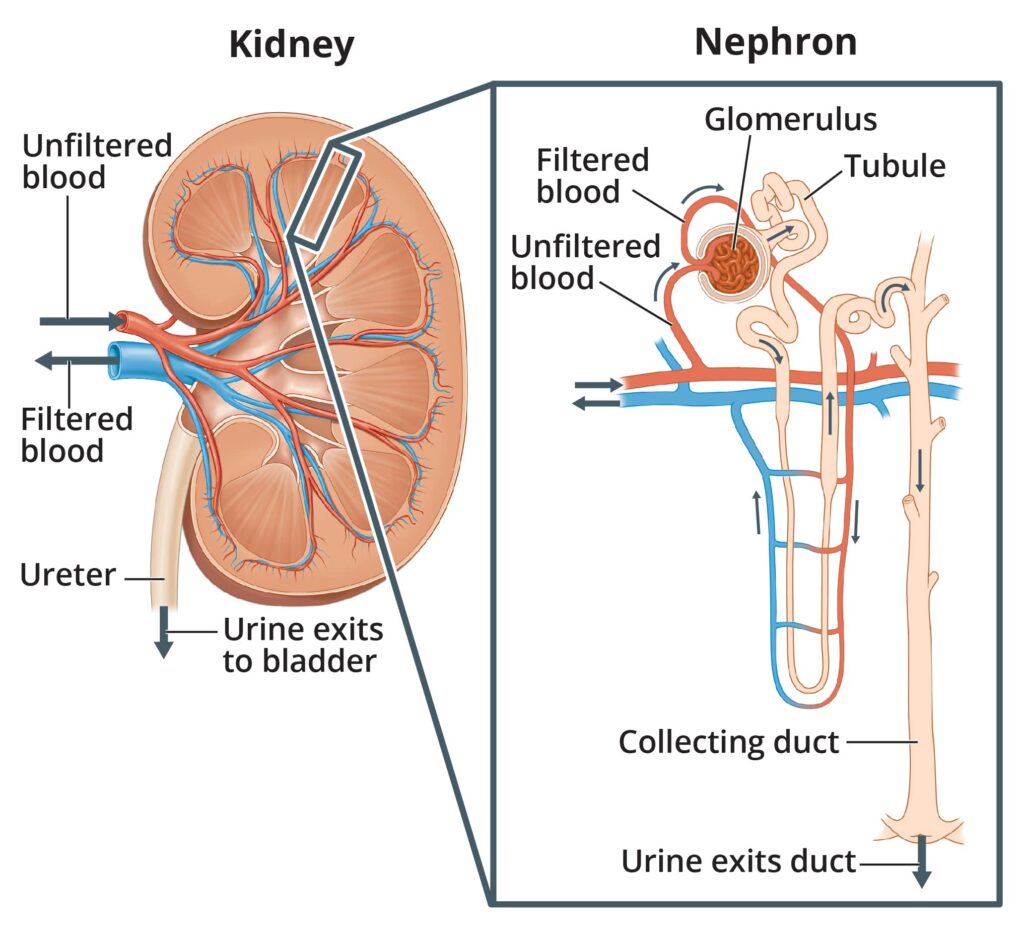Nephrotic syndrome: A kidney disorder that causes the body to excrete too much protein in the urine

Nephrotic syndrome is a kidney disorder that can cause the body to excrete too much protein in the urine.
The condition can be acute, which means it comes on suddenly and may last for a short time, or it can be chronic, which means it develops over time and may last for months or years.
Nephrotic syndrome can happen at any age, but it is most common in children between the ages of two and six. The disorder is more common in boys than girls.
Nephrotic syndrome can lead to serious complications, such as kidney failure, so it is important to seek medical treatment if you think you or your child may have nephrotic syndrome.
Nephrotic syndrome is a kidney disorder that causes the body to excrete too much protein in the urine.
 Nephrotic syndrome is a serious kidney disorder that can cause a large number of medical issues for those affected.
Nephrotic syndrome is a serious kidney disorder that can cause a large number of medical issues for those affected.
The disease mostly affects the glomeruli in the kidneys, which hurts their ability to filter and makes the urine contain too much protein.
People with nephrotic syndrome have many symptoms, such as a:
- Weakened immune system
- Swollen face and limbs from too much fluid
- Extreme fatigue, and
- Inflammation all over the body
Also, it can have long-term effects like high blood pressure, anemia, and urine infections, which can lead to kidney failure in the long run. Early diagnosis and treatment are key to helping people manage this condition over time.
Proteinuria, or too much protein in the urine, is the most common sign of nephrotic syndrome.
Nephrotic syndrome is a kidney disorder that can have life-threatening consequences.
 Proteinuria, which means that there is too much protein in the urine, is one of its most common signs. Nephrosyndrome can be diagnosed before it gets worse by looking for this sign.
Proteinuria, which means that there is too much protein in the urine, is one of its most common signs. Nephrosyndrome can be diagnosed before it gets worse by looking for this sign.
To avoid problems like high cholesterol and infections caused by a weakened immune system, it is important to find and treat the disease early.
This can be accomplished through routine testing, such as urinalysis or a biopsy, and identifying proteinuria if it exists. Nephrotic Syndrome is hard to treat, but if it is caught early, the long-term effects can be lessened for those who have it.
Other signs of nephrotic syndrome are swelling and low levels of albumin in the blood, which is called hypoalbuminemia.
Nephrotic syndrome is a problem with the kidneys that causes more proteins to leak from the blood into the urine. This is called proteinuria.
It can lead to a range of other issues such as edema, or swelling, and hypoalbuminemia, or low levels of albumin in the blood.
When salt and water are out of balance, it can lead to edema, which is when fluid builds up under the skin. This can result in puffy eyelids and rings around the neck, ankles, and hands.
Hypoalbuminemia is usually caused by a decrease in the body’s ability to make albumin. This can be due to taking certain medicines or having a disease like cancer or nephrotic syndrome.
Low levels of this molecule can cause:
- Malnutrition
- Systemic inflammation
- Slow healing
- Abnormal levels of lipids in the bloodstream
- An increased risk of coagulation problems
- Liver disease.
If left untreated, nephrotic syndrome can be widespread and potentially fatal. If you don’t treat it, it will get worse over time, so you should see a doctor as soon as you notice symptoms.
Most of the time, steroids and other medications that reduce inflammation and proteinuria are used to treat nephrotic syndrome.
Nephrotic syndrome can be treated in different ways, but steroids and other drugs like ACE inhibitors are used most often.
These are used to reduce inflammation in the body, which helps to lower protein.
Also, treatment often includes limiting how much salt and protein you eat and changing how you work out.
Doctors may also give diuretics or a low-dose aspirin regimen to help with the symptoms of nephrotic syndrome. With careful treatment and sticking to therapy techniques, the symptoms of this condition can be lessened or even stopped.
It’s important to act quickly because delaying treatment can lead to problems that may be hard to fix.
In some cases, surgery may be necessary to remove damaged kidney tissue.
Kidney failure or serious kidney damage can be a daunting medical problem to face.
Luckily, surgery may be an option to help fix the problem if a doctor sees that it is needed.
In some cases of advanced damage or deterioration, skilled surgeons can remove the damaged tissue and make a person healthier.
This does come with some risks, such as the chance of bleeding, infection, or nerve damage at the surgery site. However, with careful planning and care after the operation, many people can move on with better kidney function.
Nephrotic syndrome can cause serious problems, like kidney failure, if it is not treated correctly.
 Nephrotic syndrome is a serious medical condition that can put your kidneys at risk if it is not treated with the correct medication.
Nephrotic syndrome is a serious medical condition that can put your kidneys at risk if it is not treated with the correct medication.
It’s important to find this problem quickly and make sure you’re taking all the right steps to keep it from getting worse.
This includes taking medications as prescribed and making changes to your lifestyle, like eating healthier and not using too much of substances that are known to be bad for you, like alcohol or drugs.
Also, regular health checks can keep track of any symptoms that get worse, which you can then talk to your doctor about to get a better diagnosis and treatment.
If you act quickly, you may be less likely to have more serious problems, like kidney failure, in the future.
In conclusion, nephrotic syndrome is a serious condition that can cause many negative side effects.
It’s important to know the signs, like proteinuria and swelling, and get medical help if they happen.
Treatment for nephrotic syndrome may involve medications or even surgery, depending on the case.
Even though it can be hard to deal with, it’s important to get treatment right away to avoid more serious problems like kidney failure. If you have any of the signs of nephrotic syndrome, you should talk to doctor Javier Alfonso right away so they can give you the best care possible.
You may be interested in:
Patients in stage 4 Kidney disease
You don’t have to settle for dialysis or surgery. Get the most advanced care by the the best kidney doctor in Miami.
- Questions About Insurance?




New Patient Appointment:
We Do Not Share Your Information With Any Third Party.
Call our office to speak with a medical professional right away:
Call Now (toll free)



